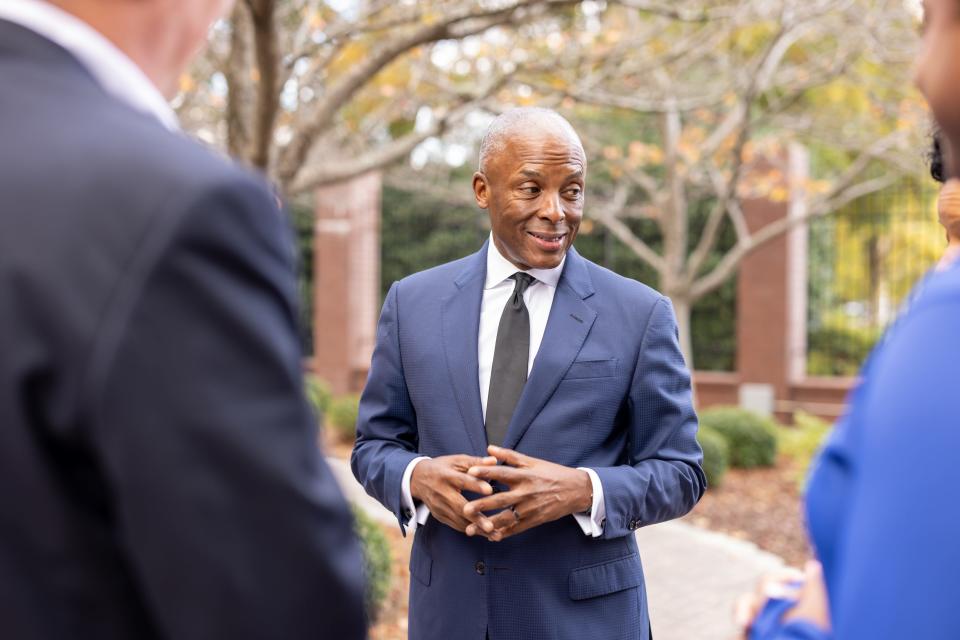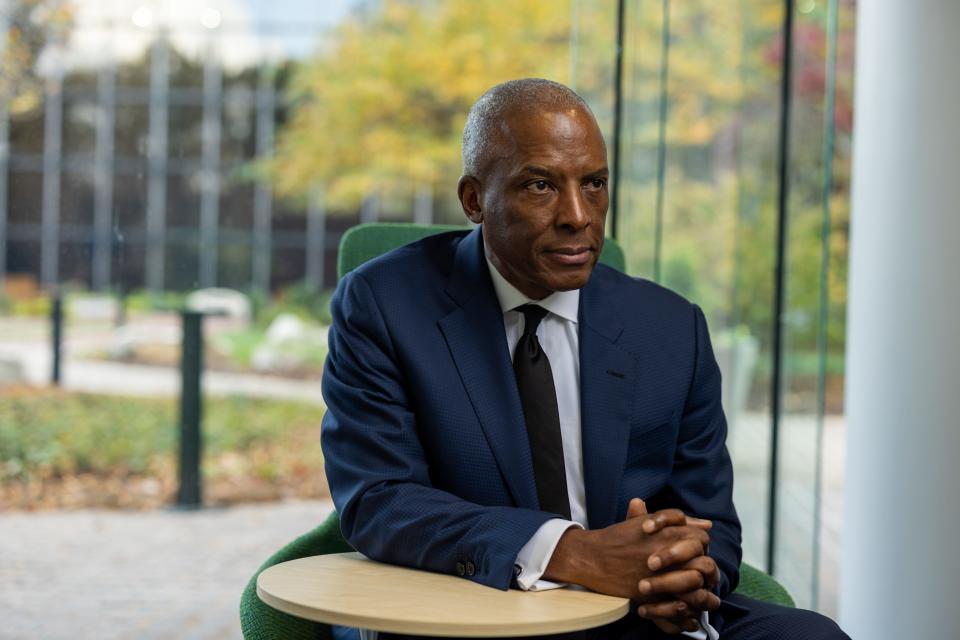Will George Floyd's murder change corporate America? A top Black CEO says he's optimistic.

As a child in Greenville, Alabama, Chris Womack says he led a simple life, tending the garden and raising chickens after school and going to church on Sundays.
He also came face to face with the harsh inequalities of growing up Black in a segregated community. When the doctor ignored his ailing mother to treat white patients, he burst into the whites-only waiting room to get help.
Womack says he never let those early experiences define him or hold him back.
“I was encouraged by mom and grandmother that I could be whatever I wanted to be and to not let those be barriers to me achieving success,” he said.
In 2021, he became the first Black CEO of energy producer Southern Co.'s largest subsidiary – Georgia Power.

In January, the company announced he would take charge of the whole organization later this year during Southern Co.'s annual meeting. The appointment will make him one of four Black CEOs in the S&P 100, the nation's 100 top publicly traded companies.
White men still overwhelmingly run corporate America, according to a USA TODAY analysis of named executive officers at S&P 100 companies. These corporate leaders include CEOs like Womack, chief financial officers and others who serve in a handful of top-paid roles.
Fourteen Black men were named executive officers in 2020, the year George Floyd's murder forced the nation to confront systemic racism. Two years later, 19 of them were, including Womack.
Progress stalls at the top: Few white women and people of color lead S&P 100 companies.
Corporate diversity: Dive into USA TODAY's series inside the nation’s most powerful companies.
He's optimistic that the demographics of corporate leadership will continue to change.
“We see the demographic shifts that we have in our workplace, in our states and in our country. We need to tackle these issues head-on,” Womack said in a wide-ranging interview with USA TODAY. "If we raise the issues, if we confront the issues, if we deal with the issues in a logical and emotional way, full of passion but also filled with structure and deep commitment, we will continue to make progress."
His responses have been edited for length and clarity.
How George Floyd’s murder could change corporate America
The eight minutes or so of the killing of George Floyd was caught on videotape, was caught on camera, it really touched a lot of people in a way that I don’t think this country had been touched. I think we have the opportunity now to really make changes, to really make a difference, to really make advancement on issues of race and on issues of equity. And I don’t want us to miss this opportunity. I don’t want us to miss this moment in time. I want us to use this as an opportunity to make real change, to make real progress.

Why Southern Company talks about race
I talk a lot about us being comfortable having uncomfortable conversations. And one of those uncomfortable conversations is talking about race. One thing that I strongly advocate in this company is that we talk to each other. We listen, we reflect, we learn, we hear each other. That is the basis for any progress that we will make.
SUBSCRIBE: Help support quality journalism like this.
How the company is committing to racial justice
We wanted to make sure that we put a structure in place that held us accountable for this work for a very, very, very long time, from the listening and talking and reflecting to the auditing of the work and the reporting of the work. We are having just as intense dialogues and intense work today as we were having back in 2020. I am really proud of this company for the work we have done while always knowing there is more work to do.
Why a company's culture matters
It’s about making sure that we are creating a culture inside of our organizations where every employee feels like they are being treated fairly and given the opportunity to be whatever they want to be. That’s the goal. That’s the noble ideal.
Contributing: Jayme Fraser
This article originally appeared on USA TODAY: Has George Floyd changed corporate America? This Black CEO says yes.
